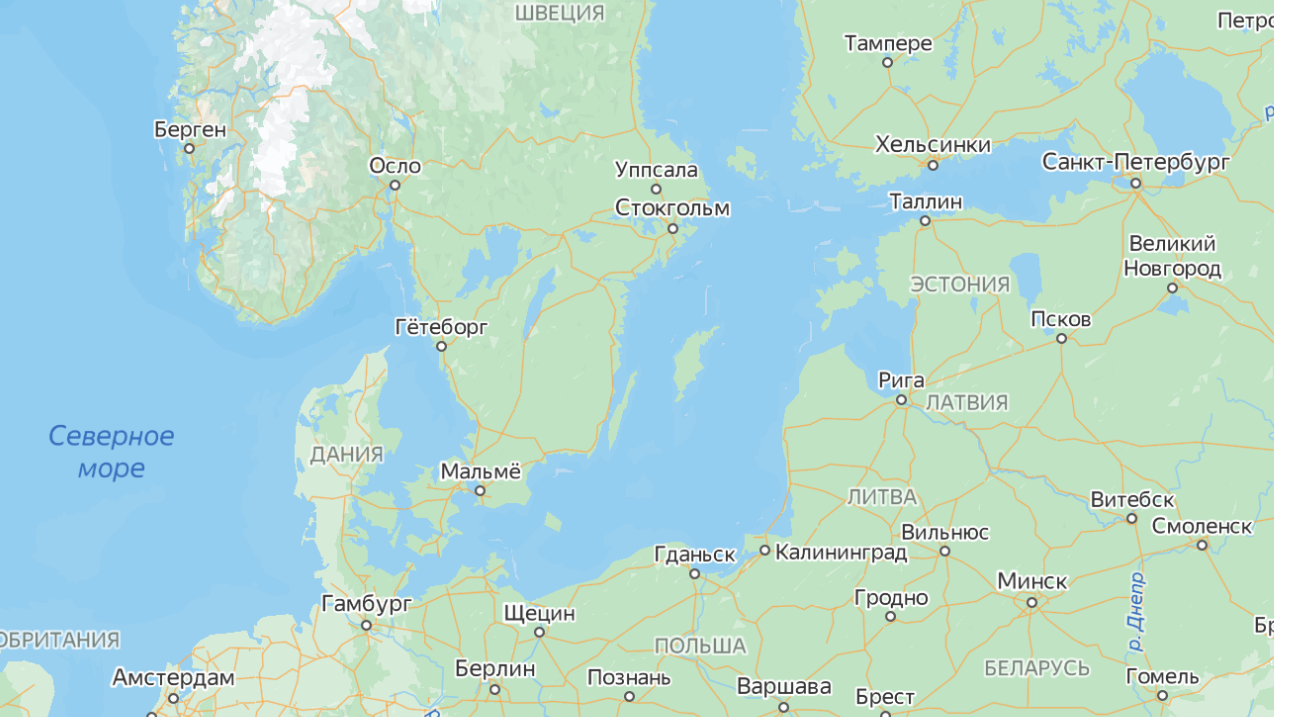
The research of the Fuels and Energy Technology Development Institute (IRTTEK) reveals the threat of blocking the Danish Straits for ships sailing to and from Russia. Maritime law experts told IAA PortNews that such actions would have no legal basis, although they cannot be ruled out either. In our opinion, restrictions on the passage of ships through the Black Sea Straits are more realistic.
| In brief Restriction of free navigation in the Danish (Baltic) Straits would contravene the UN Convention on the Law of the Sea and is possible only if NATO is ready for an armed conflict with Russia. Meanwhile, minor nagging at ships with Russian cargo cannot be ruled out. Restrictions on the passage of the Black Sea Straits are more realistic, since Turkey already resorted to them and demonstrated resolute actions in that respect. |
The challenging geopolitical situation may lead to events previously inconceivable. The research of the Fuels and Energy Technology Development Institute (IRTTEK) reveals the threat of blocking the Danish Straits for ships sailing to and from Russia. The research authors say that the countries bordering the Danish Straits (listed as unfriendly to Russia) can, on the pretext of ensuring safe navigation, impede the navigation of ships with Russian foreign trade cargo.
“Export of Russian hydrocarbons and coal by the Baltic Sea route will finally stop, which will contribute to the global shortage of energy resources and the increase in prices for them. In turn, Russia will be forced to speed up the redirection of its energy exports to other routes. However, full-scale redirection will not be possible in a short time due to logistical restrictions,” reads the study.
Kirill Maslov, Managing Partner and Attorney at St. Petersburg Law Offices Inmarine, told IAA PortNews that the Baltic (Danish) Straits are waters in which vessels are guaranteed the right of transit passage, and the jurisdiction of the coastal state covers only a narrow range of safety issues and rules of navigation, generally ecological ones.
 Kirill Maslov, Managing Partner and Attorney at St. Petersburg Law Offices Inmarine: “Taking into account the current foreign affairs situation and the conditions under which EU legislation is being formed, the introduction of restrictions in the Baltic (“Danish”) Straits may be a logical addition to the 5th, 6th, 11th packages of sanctions introducing unilateral measures. With no restrictive innovations, the only pretext for restricting navigation can be signs of navigation safety or environmental violations as well as the established procedure for conducting cargo and passenger operations.” Kirill Maslov, Managing Partner and Attorney at St. Petersburg Law Offices Inmarine: “Taking into account the current foreign affairs situation and the conditions under which EU legislation is being formed, the introduction of restrictions in the Baltic (“Danish”) Straits may be a logical addition to the 5th, 6th, 11th packages of sanctions introducing unilateral measures. With no restrictive innovations, the only pretext for restricting navigation can be signs of navigation safety or environmental violations as well as the established procedure for conducting cargo and passenger operations.” |
However, the UN Convention on the Law of the Sea sets forth the key principle of nondiscriminatory laws of the States bordering the straits (Articles 34, 42). That means that new laws and regulations shall not discriminate foreign ships’ right of transit passage. “Thus, if any restrictions are introduced they will be wrongful under the international law of the sea,” says the expert.
In this context, the lawyer believes, escorting of merchant ships by RF Navy’s warships cannot be excluded.
Kirill Maslov: “For quite a long time, Denmark has been trying to dilute the principle of free navigation in the straits and introducing various notifications and procedures by domestic law, including for warships, but their peaceful transit, particularly for escorting purposes, cannot be ruled out.”
.jpeg)
In our opinion, blocking of the Baltic Straits is only possible if NATO is ready for a direct armed conflict with Russia since it would mean a blatant violation of the International Law of the Sea and pose high risks of armed confrontation with the Russian Navy. Therefore, we do not consider such a scenario as highly probable, although minor nagging at Russian ships cannot be ruled out.
We believe that problems with the passage of the Black Sea Straits is more probable, the more so as there were such cases before. In December last year, dozens of tankers stuck in the straits due to insurance companies’ rejection to confirm insurance for Russian tankers passing the Straits. Besides, Turkey can manipulate with the size of the fee for the use of infrastructure when passing through the straits. Since October 2022, its size has increased 5.5 times. It is obvious that the issue of unhindered passage of the straits can be used as pressure for resolving political issues, for example, when discussing the Grain Deal.
More industry-related content is available on our social media pages: YouTube, Telegram, Yandex Zen



